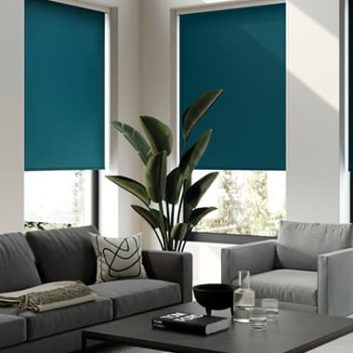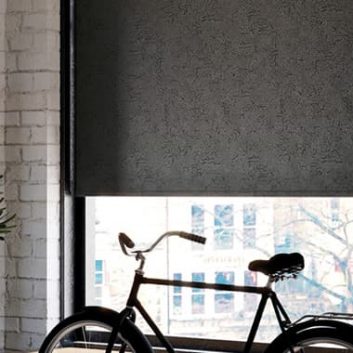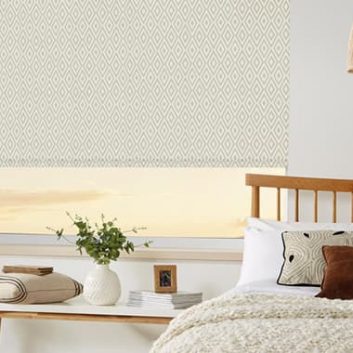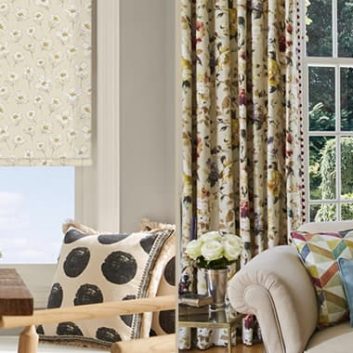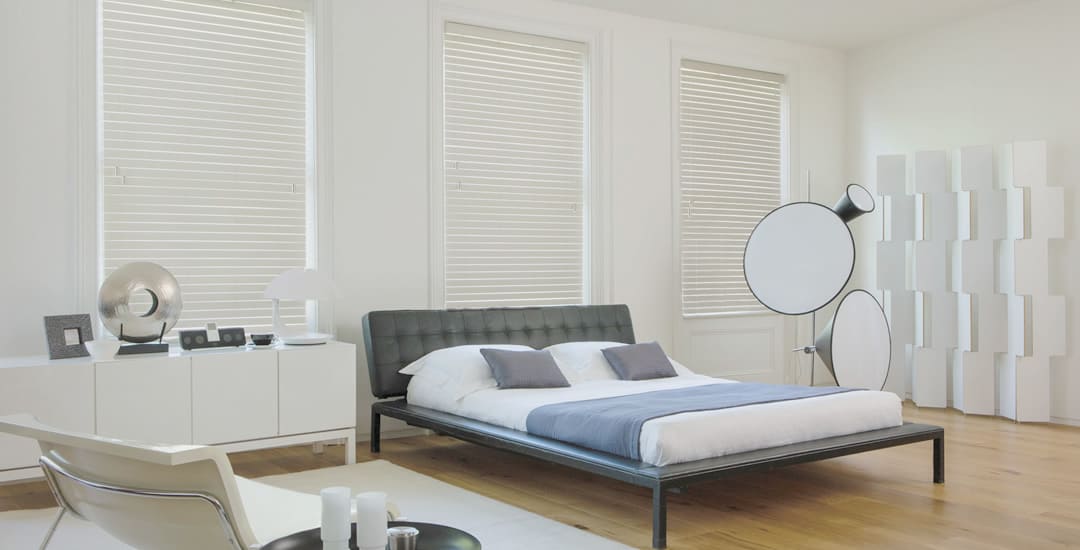
Are faux wood blinds worth it? Yes, for a number of reasons that altogether make them perhaps the best all-rounder and certainly the most hardwearing type of blind, as well as potentially the one with the most diverse range of applications.
With this in mind, I’ll start off by giving a guide on how much you should pay for faux wood blinds, how much they cost compared to other types of blinds, how hardwearing they are, and if they’re a good choice for various different things.
Are faux wood blinds worth it pricewise?
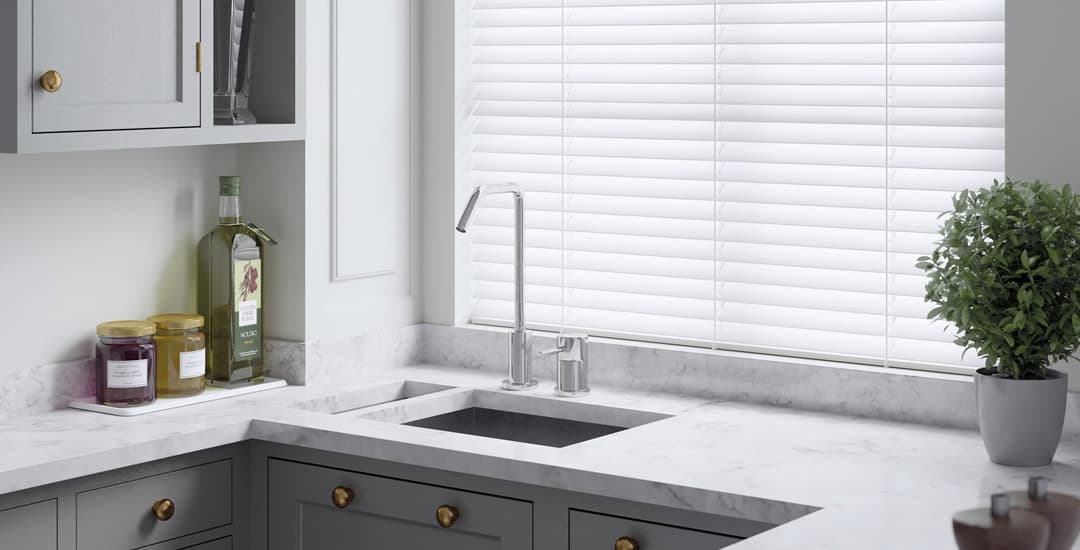
When we talk about a thing being “worth it,” we usually mean either in terms of the price/value, the hassle, or a bit of both. So, are faux wood blinds worth it pricewise, and how expensive are they?
How much a faux wood blinds costs depends on obvious things like the size and quality of the blind and who you buy it from, so I can’t give you a catch-all figure or ballpark that is useful for everyone.
I can point you towards our page of faux wood blinds for sale, which indicates the starting prices for smaller blinds of this type; and on the individual product page of any given blind you like, you can input your measurements and find out exactly how much a faux wood blind from us would cost.
For reference, made-to-measure window blinds from a good quality manufacturer/direct retailer like us will most definitely cost you more than a less-fine-quality readymade one; but ours will also outlive theirs by potentially five times or more.
Compared to other made-to-measure window blind makers/retailers operating in the UK, the price of our faux wood blinds tends to fall around the middle of the pack, discounts and sales notwithstanding. I challenge anyone to beat us on quality, however.
Compared to other types of blinds, faux-wood blinds fall quite literally dead in the middle of the price spectrum – they’re more costly as a rule than roller, vertical, and Venetian blinds, but less costly than real wood, day and night, and Roman blinds.
Putting all of this information together (particularly if you do as I suggest and get some quotes via one of our faux wood blind product pages) will help to give you an idea of how much you might expect to pay for faux wood blinds and how this compares to other types of blinds, both those more basic and those fancier; and then, when you know this, you can get into the real “is it worth it” question.
Do faux wood blinds last longer than other types of blinds?
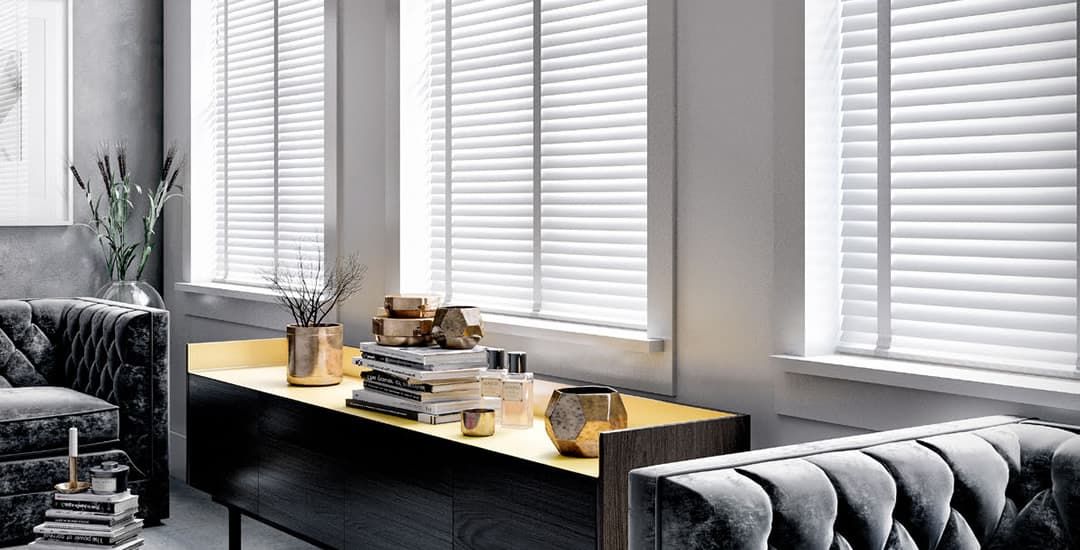
Any type of made-to-measure blind that is opened and closed with a moderate degree of consideration (but without the need to be unduly cautious), used in the appropriate environment, and not subjected to the sort of treatment that might result in damage or a rapid rate of wear (think, the type of things children inexplicably sometimes do when you’re out of the room) should last for north of a decade and possibly a lot more in terms of functioning as intended.
Cosmetically, a faux wood blind that is handled daily might begin to show minor signs of wear after around 7-8 years, but without this affecting its functionality in any way. Blinds that aren’t opened and closed twice a day will naturally avoid any signs of wear for rather longer.
When it comes to readymade faux wood blinds, these are intended to have a useful lifespan of just two years (five at the most if used rarely) and by this I mean, beginning to fail functionally as well as looking less than pristine.
One situation/setting in which I would say that made-to-measure faux wood blinds really come into their own in terms of being able to outlive pretty much any other type of blind you can name, is if you have destructive children.
If you do – well firstly sorry, that must be quite the problem. But secondly, it also usually means that when you buy new things, you probably try to ensure that they’re either cheap enough to be virtually sacrificial, or sturdy enough to withstand regular games of “hit it with a sword.”
As a blind with a mid-range price point, this might make faux wood blinds borderline risky for folk in this sort of situation if they weren’t so sturdy, with cheaper options holding some appeal. But faux wood blinds are without doubt the most hardwearing/sturdy type of blind you can buy, which means that they fulfil the criteria of being able to take the odd knock without falling down/apart.
Faux wood blinds are made of dense PVC, which is virtually impossible to break, even if you were trying (and we all know that kids can be very trying).
Obviously children aren’t the only potential threat a blind might face; so if you need blinds that are particularly hardwearing for any reason, child-related or not, faux wood blinds are worth the money.
Are faux wood blinds worth it for kitchens and bathrooms?
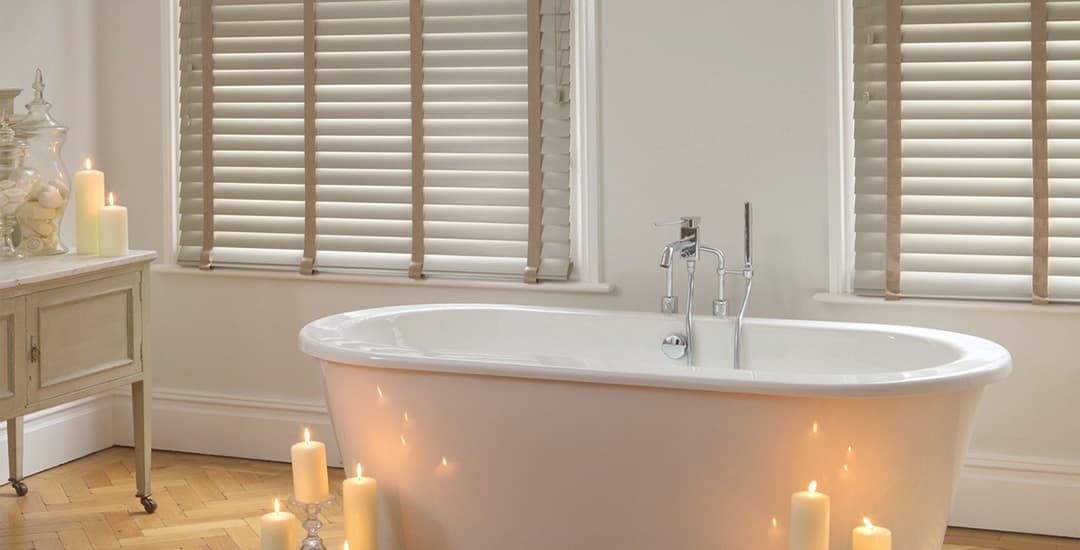
Yes, faux wood blinds are an excellent investment for kitchens and bathrooms, for a few reasons. First of all, they’re waterproof, which is essential for blinds used in rooms like these, and this means that if you like wooden blinds, faux wood is the better option to survive the humidity and potentially, heat. They’re also easy to clean, so that if they build up a residue of cooking fat and grime over time, this can simply be wiped off with soapy water.
Also, because they’re made of a thick, dense material, faux wood blinds are excellent at insulating your windows. This is often particularly important for bathrooms, being as they are sometimes colder than the other rooms of the house and potentially, not heated at all.
Are faux wood blinds worth it for children’s bedrooms?
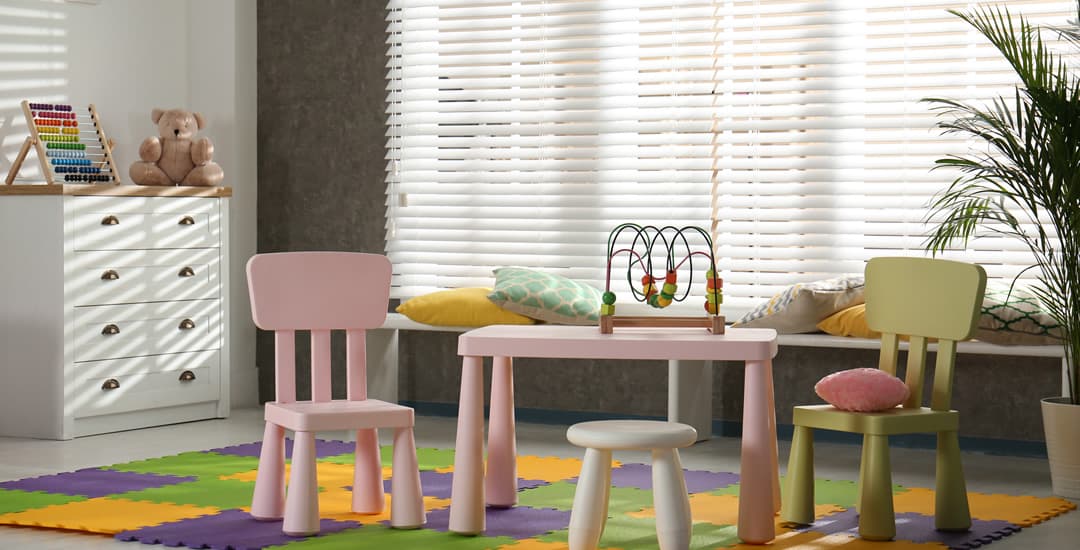
Yes, faux wood blinds will outlive more or less any other type of blind in a child’s bedroom.
In my opinion, the two best choices for children’s bedrooms are faux wood blinds and patterned roller blinds respectively; the former because they’re hardwearing and waterproof and the latter because they’re low cost, and have designs that appeal to children.
Faux wood blinds can also filter the light, which means that whether your child sleeps best in darkness or with a little light, you can meet their needs.
Do faux wood blinds keep out light like blackout blinds do?
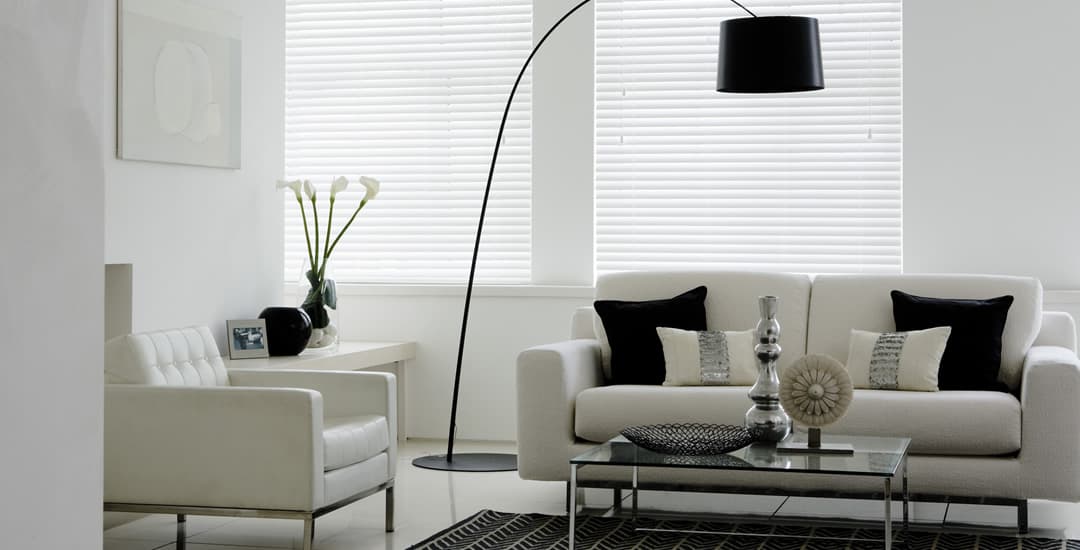
On which note, do faux wood blinds keep out light like blackout blinds? Almost. Faux wood blinds aren’t technically a type of blackout blind, because light escapes around the sides of the blind and tiny pinpricks of light can sometimes be seen through the little holes that their lift cords pass through. This effect is negated if you choose faux wood blinds with ladder tapes instead.
Faux wood blinds are, as mentioned, thick and sturdy, and so will block most external light when fully closed if hung correctly. You can also tilt their slats to allow a little light through as mentioned above for children, if required.

